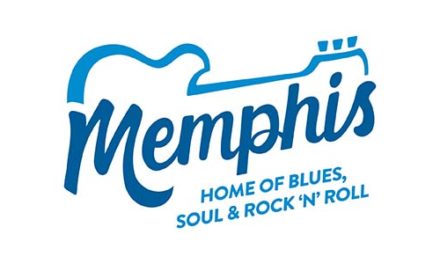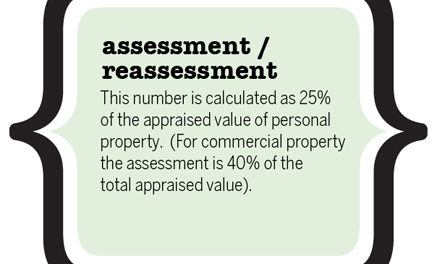Yes, we agree with Tea Partiers that government needs to return to its historical underpinnings.
No, we don’t mean the historical fictions advanced by the Tea Party to justify policies that often seem un-American in a modern context. After all, if we take the admonitions literally about returning to the governmental world of our founding fathers, we’re talking about a world where some people were property, one gender couldn’t vote, and U.S. senators were elected by state legislatures.
Rather, we mean the way that early governments represented our values as Americans. While there are members of the Shelby County Board of Commissioners, notably Wyatt Bunker, suggest that it’s up to churches and civic groups to care for the less fortunate and the poor, he absolutely has no basis in fact. Some of the first actions by Shelby County Government were to care for citizens who needed help.
Public Conscience
The first County Court – which in those days served as the administrative, legislative, and judicial branches for a population of 350 – met May 1, 1820, in a log house near Main and Winchester. In one of its first meetings, the county court levied a tax to help the poor, and to follow it up, on February 7, 1821, county government approved its first assistance to the poor, approving $13 for a “pauper.” In May, 1828, the first poor person was buried at county expense for $16.
Operations by the County Court were informal by today’s standards. Attendance was irregular and meetings were regularly held in members’ homes. It was not unusual for one member to show up and then adjourn because no one else did. Or, when one member was arrested for public drunkenness, other members would step out of the room so there was never a quorum to try, much less convict, him.
When the County Court learned that the Legislature had approved the incorporation of the town of Memphis, some members were upset because they felt it was a trick to exclude poor people who would be outside the city limits. After its creation, the new governing body of city government quickly created schools while county government created a hospital.
The Fever
Memphis coped with numerous yellow fever epidemics beginning in 1851, but the devastating 1873 epidemic left the city without 5,000 people who died, 25,000 who moved away, and without a city charter. Eventually, a new government would be formed – and called the “Taxing District” (no, early Memphians weren’t scared to use the “t” word – and it would organize the board of health to begin the work of improving city sanitation.
But elected officials weren’t only not afraid to talk taxes, they also took pride in calling themselves “progressives.” In fact in the late 19th century and early 20th century, Memphis was a leader in the Progressive Movement in American government, demonstrating a commitment to reform and hope for a new century. Propelled by the editorial policy of The Commercial Appeal, which never hesitated to deal with controversial issues or kowtow to its readers’ biases, Memphians were educated about better ways for government to help its citizens.
If there is a lasting symbol of the Progressive Era in Memphis, it is the Memphis Park and Parkway System, which, according to the Tennessee Encyclopedia of History and Culture, was “one of the earliest efforts in the South to introduce basic concepts of modern comprehensive urban planning and design by George E. Kessler (1862-1923), widely regarded as one of the fathers of urban planning in America.”
Impulse for Progress
“The Memphis Park and Parkway System resulted from the vision of the new civic capitalists who emerged in the wake of the yellow fever epidemics of the 1870s. In 1895 these well-educated, well-traveled, and prosperous capitalists established the Greater Memphis Movement (GMM), a loose organization devoted to the promotion of a progressive civic agenda that included annexation of suburban areas to the east, establishment of a public water and gas utility, extension of George Waring’s revolutionary sewer system, and construction of a system of parks and connecting boulevards to unite the new city with the old.”
Memphis quadrupled its size in 1899 when it annexed seven square miles. The son of the legendary Frederick Law Olmstead Sr., John Olmstead, was hired to lay out the new parks but he said, after touring Memphis on a bicycle, that because of the growth of Memphis, it should develop two large parks, one on the river south of the city and the other at the eastern borders connected by a system of parkways.
The city purchased 175 acres of on old farm tract called Lea’s Woods, which became Overton Park, and 340 acres on the Mississippi River which became Riverside Park. The system of parkways connecting them was made possible by the gift of land from leading Memphians. In the words of William D. Miller, in Memphis During the Progressive Era, “the concern shown for parks by public officials for parks was, in a board sense, an expression of an impulse for social betterment and a part of the pattern of progressivism.”
Change for the Better
In the end, the complex and ambitious Memphis project included the redesign and development of three of the city’s four original 1819 squares; the design of three new small urban parks, including Forrest, Confederate, and Gaston Parks; the design and development of Overton and Riverside Parks; and the design for the new system of parkways to connect these parks and spur development in the newly annexed areas. By the end of 1906, more than 1,750 acres of parkland had been purchased, designed, developed, and opened.
There are many parallels from the Progressive Era to present day Memphis – emphasis on parks as an instrument for a better city, better planning, and more progressive city leadership – but suffice it to say for the purpose of this post, Memphis and Shelby County’s earliest impulses were to provide basic services for the poor and for those in need of help.
It is timely to focus on our traditions – when government inspired us with the vision of a better city and better quality of life and public investments to achieve it — and remember that hope and charity are as much local traditions as music and the river. For some to suggest that local government should forsake services for the poor and for children and not invest in amenities for our community is not only bad public policy, it’s bad history.






Conservative Commissioners argue that the County government shouldn’t help the poor but they seem to have no problem with county Government helping the rich, such as allowing for uncontrolled development and then paying for the infrastructure for that development with public funds.
I appreciate this article on the value of wise public investment.
Yes, the Republicans (as personified by people like Bunker) have turned American values upside down. Their pejorative use of “progressives” as socialists or communists attacks a fellow Republican – Teddy Roosevelt who was a major leader in the Progressive Era; and it was the Progressive Era that produced a middle class in the first place.
Most Republicans are voting against their own self interest by attacking social programs. Helping the poor raises all ships and promotes a better economy. Don’t forget that our government is representative of all churches and civic groups plus we also involve the atheists.
The migration of middle class Republicans to the urban edge in search of a “small town, rural atmosphere” today produces an anti-urban bias, which kills the very thing that propels their economy.
Tea Party supporters believe that states and local governments should take greater responsibility for the welfare of their citizens, as opposed to the federal government,ie, federalism/decentralization as originally intended. So you can put your pitchforks and your misleading straw-man arguments away.
Jason:
You are right. And they then argue that local government should not fund these programs either. They argue for federal funding to go to the states because most governors are Republicans.
We think that there is no conflict between the values and opinions of the founding fathers and a federal government that cares for its citizens. We don’t find this in the kind of America that Tea Partiers describe and pursue, one of intolerance, lack of compassion, and “me first” patriotism.
And by the way, this was no straw man argument. It is based strictly on the facts as stated by the right wingers here.
less than half the current crop of commissars were around to collect ‘contributions’ from slimy developers back when somebody was actually building something somewere in the County. Now it’s the colour of the skins sitting before them thats of manifest impo’tance, or getting even with each other over some political slight.
The fact that rowland, brooks, et. al. should be arrested and fined for misusing such a valueable resource as oxygen is a missed opportunity IMHO.
Never thought I would miss Charlie Perkins…